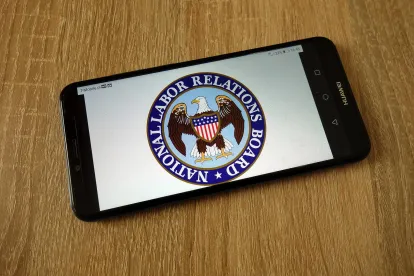In a decision instructive to employers facing sudden, emergency conditions requiring immediate response, a divided National Labor Relations Board (NLRB) in Metro Man IV, LLC d/b/a Fountain Bleu Health and Rehabilitation Center, Inc., 372 NLRB No. 37 (December 28, 2022), expanded an employer’s obligation to bargain with a union in the aftermath of exigent circumstances. The Board majority determined that an employer must bargain over both the decision and its effects once the emergency passes.
Background
Fountain Bleu Health and Rehabilitation Center, Inc., owned and operated a 108-bed nursing home in Livonia, Michigan. Following the company’s purchase of the facility in October 2018, it voluntarily recognized the union as the collective-bargaining representative for two bargaining units of employees: in one unit, licensed practical nurses; in the other unit, certified nursing assistants (CNAs) and other support staff.
By the end of March 2020, the facility was severely impacted by the COVID-19 pandemic with approximately 60–75 percent of staff refusing to report to work. In response to the personnel crisis, in the first week of April, management unilaterally implemented a $2-per-hour facility-wide pay raise. When the company’s chief operating officer announced the increase in pay rates, he stated that it would remain in place as long as COVID-19 patients were in the building. Additionally, the company relied on a federal emergency waiver of licensing requirements for nursing assistants to unilaterally hire noncertified CNAs to perform work normally performed by the CNAs of the bargaining unit.
The measures the company took in response to the personnel challenges proved temporary. On June 16, 2020, it ended the $2-per-hour pay rate increase. As forecast by the chief operating officer, this change followed the last day that a facility resident tested positive for COVID-19. Additionally, the last noncertified CNA performing bargaining unit work ended employment with the company on November 2, 2020.
The company did not directly disclose to the union the temporary pay rate increase or that it had hired noncertified aides. Rather, the union learned of these developments from unit employees during a first-contract bargaining session on August 4, 2020. When the union raised these issues, the company’s bargaining attorney denied that the company was obligated to bargain over either decision.
The NLRB’s Analysis
The Board majority began its analysis by recognizing that the personnel issues created at the facility by the COVID-19 pandemic met the exigent circumstances exception to bargaining obligations. Generally, an employer may not unilaterally implement changes to wages or assign bargaining unit work to nonunit employees unless the employer satisfies its burden to demonstrate that “economic exigencies compel prompt action.” Here, the majority concluded that the company did not violate its bargaining obligation when it did not notify the union about the pay raise and the hiring of noncertified aides.
The majority nevertheless found that the exigent circumstances exception was narrow and that the duty to bargain had been merely delayed, not extinguished. That is, exigent circumstances did not relieve the company of the requirement to notify the union of the changes and bargain over the decisions and their effects. Once the need to act unilaterally had passed, the company was required to notify the union and provide an opportunity to bargain. The majority explained that the company had been required to provide notice and an opportunity to bargain after it had implemented the hourly wage increase and begun hiring noncertified aides. It also was obligated to bargain over the separate decision to rescind the pay raises.
Dissent
Writing in dissent, Member Marvin E. Kaplan criticized the majority for failing to follow NLRB precedent and for expanding employers’ bargaining obligations in the face of exigent circumstances. Member Kaplan argued that the NLRB had previously applied the exigent circumstances exception to eliminate the obligation to engage in decisional bargaining, not delay it. Further, he disputed the majority’s view that the company had made separate decisions to grant and rescind the hourly wage increase, finding that the company had announced a single decision limiting the wage increase to the time during which residents tested positive for COVID-19.
Key Takeaways
Employers may find this decision instructive when faced with exigent circumstances requiring unilateral action. Although the context for this case was the COVID-19 pandemic, the exigent circumstances exception is not limited to such conditions. For example, exactly fifteen years before this decision, the NLRB found that the exception applied to an employer’s unilateral decision to lay off employees in response to a hurricane evacuation order.
Under Fountain Bleu Health and Rehabilitation Center, even when the exigent circumstances exception applies, employers are required to provide notice to the union and an opportunity to request bargaining concerning both the decision as well as the impact of the decision on bargaining unit employees. Therefore, although employers continue to have some leeway to unilaterally implement changes to terms and conditions to address unexpected emergencies, the Board requires employers to provide notice and an opportunity for the union to request bargaining, even if bargaining takes place after implementation. This Board’s new bargaining mandate may impact an employer’s strategy regarding the changes to terms and conditions it chooses to implement. Employers may want to consider including provisions in collective bargaining agreements addressing the rights and obligations of the parties in the event of exigent circumstances.




 />i
/>i
